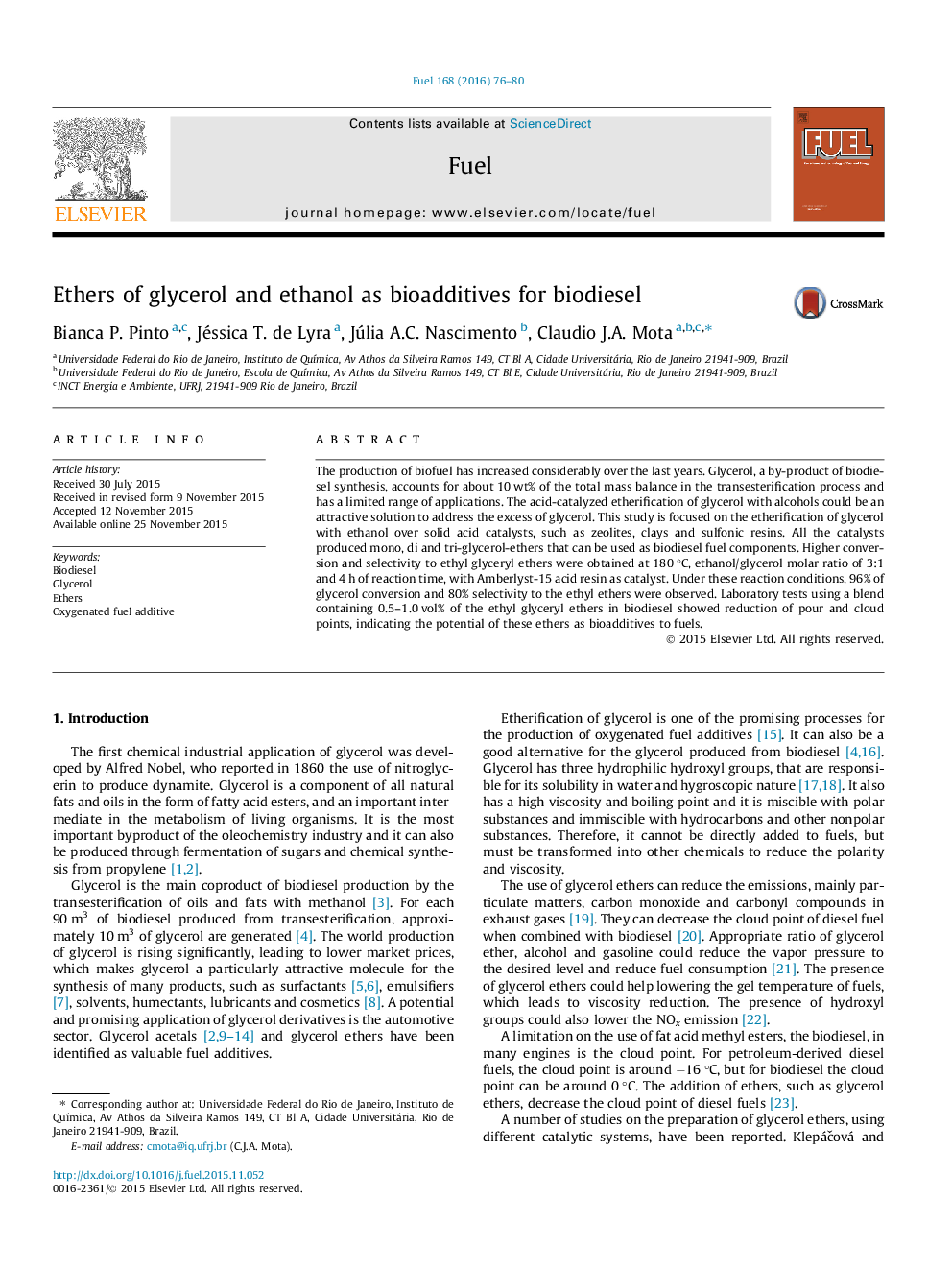| Article ID | Journal | Published Year | Pages | File Type |
|---|---|---|---|---|
| 205474 | Fuel | 2016 | 5 Pages |
The production of biofuel has increased considerably over the last years. Glycerol, a by-product of biodiesel synthesis, accounts for about 10 wt% of the total mass balance in the transesterification process and has a limited range of applications. The acid-catalyzed etherification of glycerol with alcohols could be an attractive solution to address the excess of glycerol. This study is focused on the etherification of glycerol with ethanol over solid acid catalysts, such as zeolites, clays and sulfonic resins. All the catalysts produced mono, di and tri-glycerol-ethers that can be used as biodiesel fuel components. Higher conversion and selectivity to ethyl glyceryl ethers were obtained at 180 °C, ethanol/glycerol molar ratio of 3:1 and 4 h of reaction time, with Amberlyst-15 acid resin as catalyst. Under these reaction conditions, 96% of glycerol conversion and 80% selectivity to the ethyl ethers were observed. Laboratory tests using a blend containing 0.5–1.0 vol% of the ethyl glyceryl ethers in biodiesel showed reduction of pour and cloud points, indicating the potential of these ethers as bioadditives to fuels.
